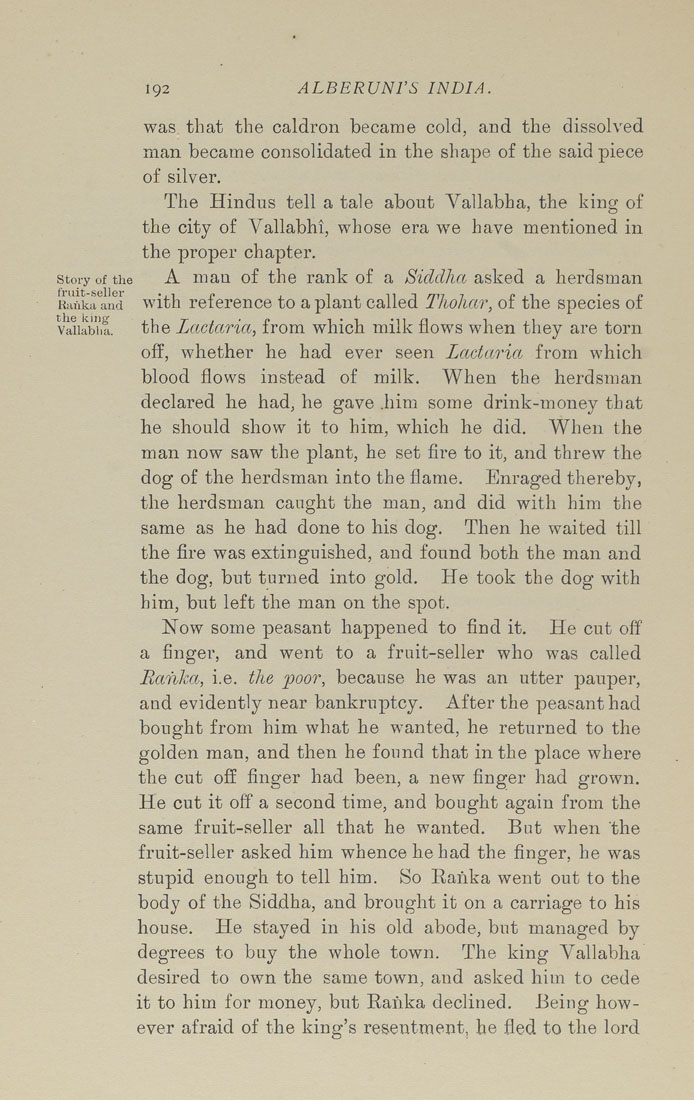Bīrūnī, Muḥammad ibn Aḥmad, Alberuni's India (v. 1)
(London : Kegan Paul, Trench, Trübner & Co., 1910.)
|
||
|
|
|
|
| Page 192 |

192 ALBERUNPS INDIA. was that the caldron became cold, and the dissolved man became consolidated in the shape of the said piece of silver. The Hindus tell a tale about Vallabha, the king of the city of Vallabhi, whose era we have mentioned in the proper chapter. story of the A luau of the rank of a Siddha di^\.ed a herdsman Rahka and with reference to a plant called Thohar, of the species of vaUabha. the T^actciria, from which milk flows when they are torn off, whether he had ever seen Lactaria from which blood flows instead of milk. When the herdsman declared he had, he gave .him some drink-money that he should show it to him, which he did. When the man now saw the plant, he set fire to it, and threw the dog of the herdsman into the flame. Enraged thereby, the herdsman caught the man, and did with him the same as he had done to his dog. Then he waited till the fire was extinguished, and found both the man and the dog, but turned into gold. He took the dog with him, but left the man on the spot. Now some peasant happened to find it. He cut off a finger, and went to a fruit-seller who was called Banket, i.e. tlie poor, because he was an utter pauper, and evidently near bankruptcy. After the peasant had bought from him what he wanted, he returned to the golden man, and then he found that in the place where the cut off finger had been, a new finger had grown. He cut it off a second time, and bought again from the same fruit-seller all that he wanted. But when the fruit-seller asked him whence he had the finger, he was stupid enough to tell him. So Eaiika went out to the body of the Siddha, and brought it on a carriage to his house. He stayed in his old abode, but managed by degrees to buy the whole town. The king Vallabha desired to own the same town, and asked him to cede it to him for money, but Rahka declined. Being how¬ ever afraid of the king's resentment, he fled to the lord |
| Page 192 |







